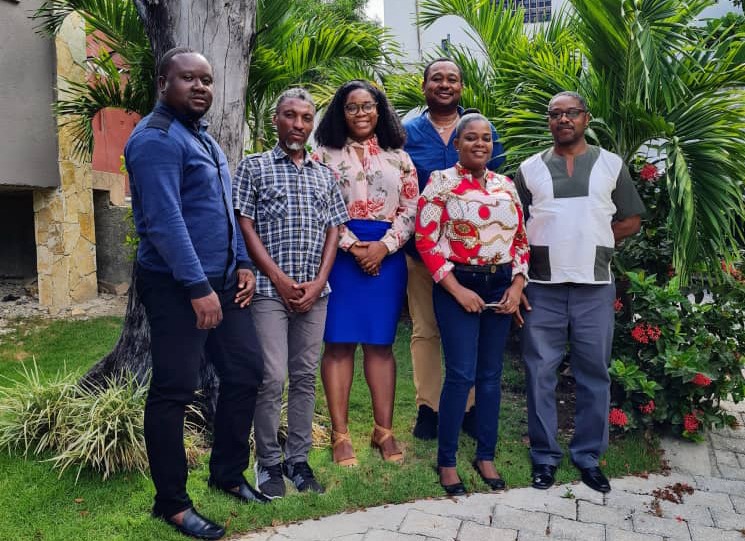Opening Doors for New Local Partners in Haiti
Opening Doors for New Local Partners in Haiti

Strengthening a country’s capacity to lead its own development is a keystone of the US Agency for International Development (USAID)’s efforts for sustainable development. Supporting the engagement of local partners and communities to identify their development challenges, develop solutions, and bring the capacity, leadership, and resources to make those solutions a reality is essential for building strong and responsive health systems.
This is at the core of the USAID Health Leadership Project (HLP), a program based in Haiti, implemented by Management Sciences for Health (MSH) with Haitian partners Group Croissance and the Centre de Formation et d’Encadrement Technique (CFET) whose goal is to support the Ministry of Public Health and Population in building a health system that is accessible, accountable, affordable, and less reliant on external partners for the equitable delivery of quality health services.
A critical element of HLP is shifting more leadership, ownership, decision making, and implementation to the local people and organizations who possess the capability, connectedness, and credibility to drive change in their own countries and communities. This innovative approach is a key aspect of USAID’s support to Haiti, and essential for fostering sustainable results across both development and humanitarian assistance work.
Today and for the first time, HLP’s implementing partners—Group Croissance and CFET—have successfully met USAID’s technical and financial standards to receive direct funding from the Agency and assume leadership of the HLP project.
Driving local capacity building
Since the start of HLP in May of 2019, Group Croissance—an organization specializing in governance, health finance, and budget transparency—and CFET, a leader in human resource management, have supported the program’s efforts to build the country’s capacity to lead and finance the health sector and improve its planning and oversight of the health workforce.
The local footprint that CFET and Group Croissance bring, alongside their 30 and 25 years of expertise respectively, have helped strengthen private and public sector efforts. CFET played an important role, for example, in the development of a transition plan in 2020 to gradually absorb HIV health workers previously paid by donor-funded organizations into the government’s budget. Group Croissance worked closely in the development of the Plan Directeur de Santé which will guide Haiti’s health-related objectives and its strategy for the next decade.
In order to receive direct funding from USAID, both organizations needed to build their organizational capabilities. MSH provided technical assistance to the two groups, training to improve know-how in areas from financial management to governance to human resources. Use of an MSH-developed capacity building tool, Organizational Synthesis of Capacity Assessments for Award Readiness, or OSCAR tool, helped both groups achieve the highest scores on the assessment of domains USAID uses to gauge readiness to manage donor funding.
During an 18-month period that was also marked by COVID-19, political instability, and natural disasters in Haiti, MSH and both organizations worked to strengthen their performance gaps through targeted capacity building and coaching sessions. MSH’s technical advisors collaborated with the partners to jointly develop procedural manuals, reinforce managerial practices, and establish systems that could prepare their institutions to become prime recipients of USAID funding. The partners found this process helpful to achieve the outcomes, with Ms. Gay, CEO of CFET, noting that “this approach gave us the capacity to achieve our vision of helping communities to take care of their own development option…local implementation will help provide better ownership by Haitians of the development process of their health system and better acceptance of the proposed changes through a transfer of skills to State executives at all levels of the health pyramid for an effective strengthening of the system.”
The extensive capacity building process marks an important cornerstone in HLP implementation. MSH feels strongly that local partners are best positioned to drive their countries’ development. By becoming accountable for achieving HLP’s objectives, Group Croissance and CFET will play an important role in supporting the Government of Haiti in its continued push to bring quality care to the people of Haiti.